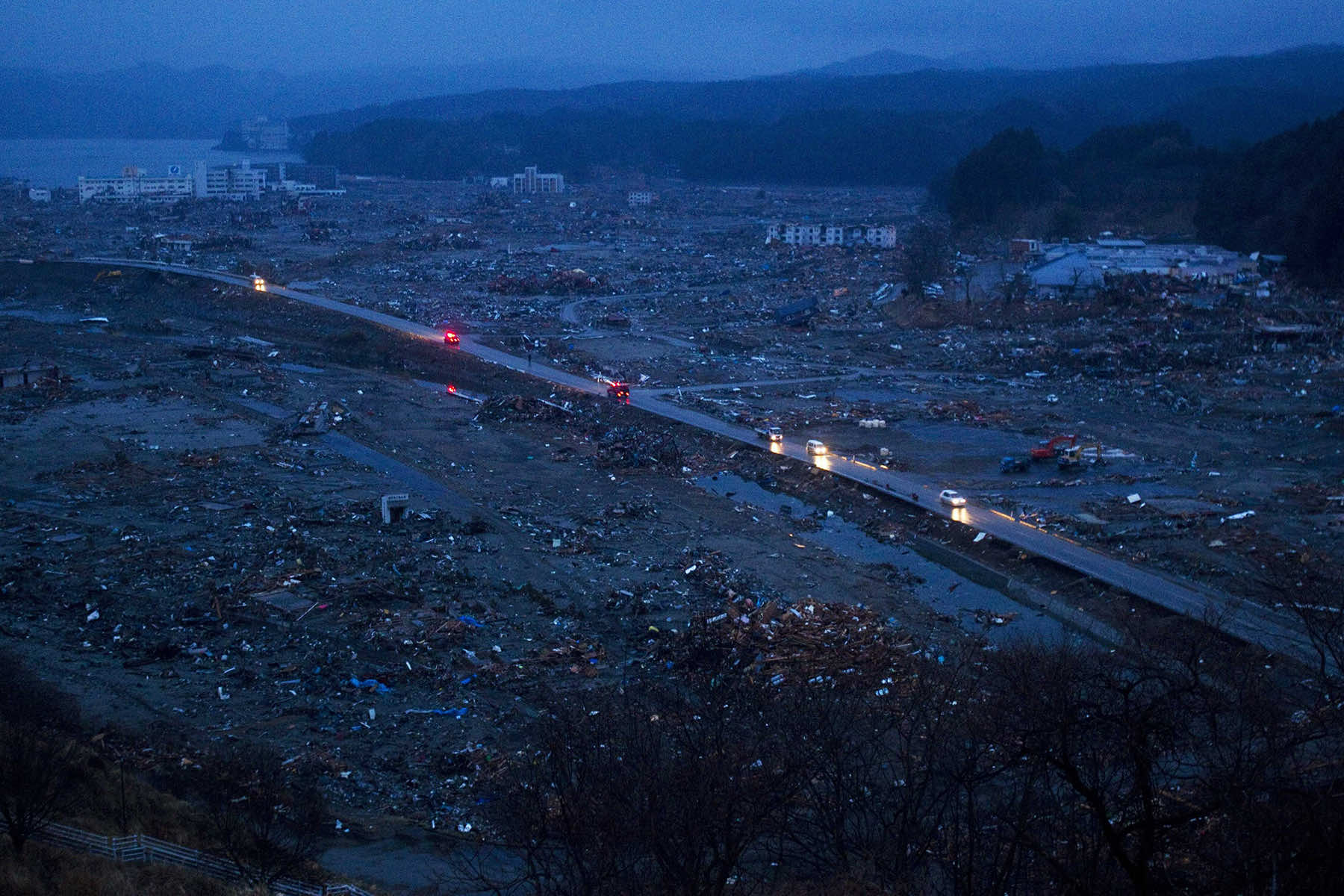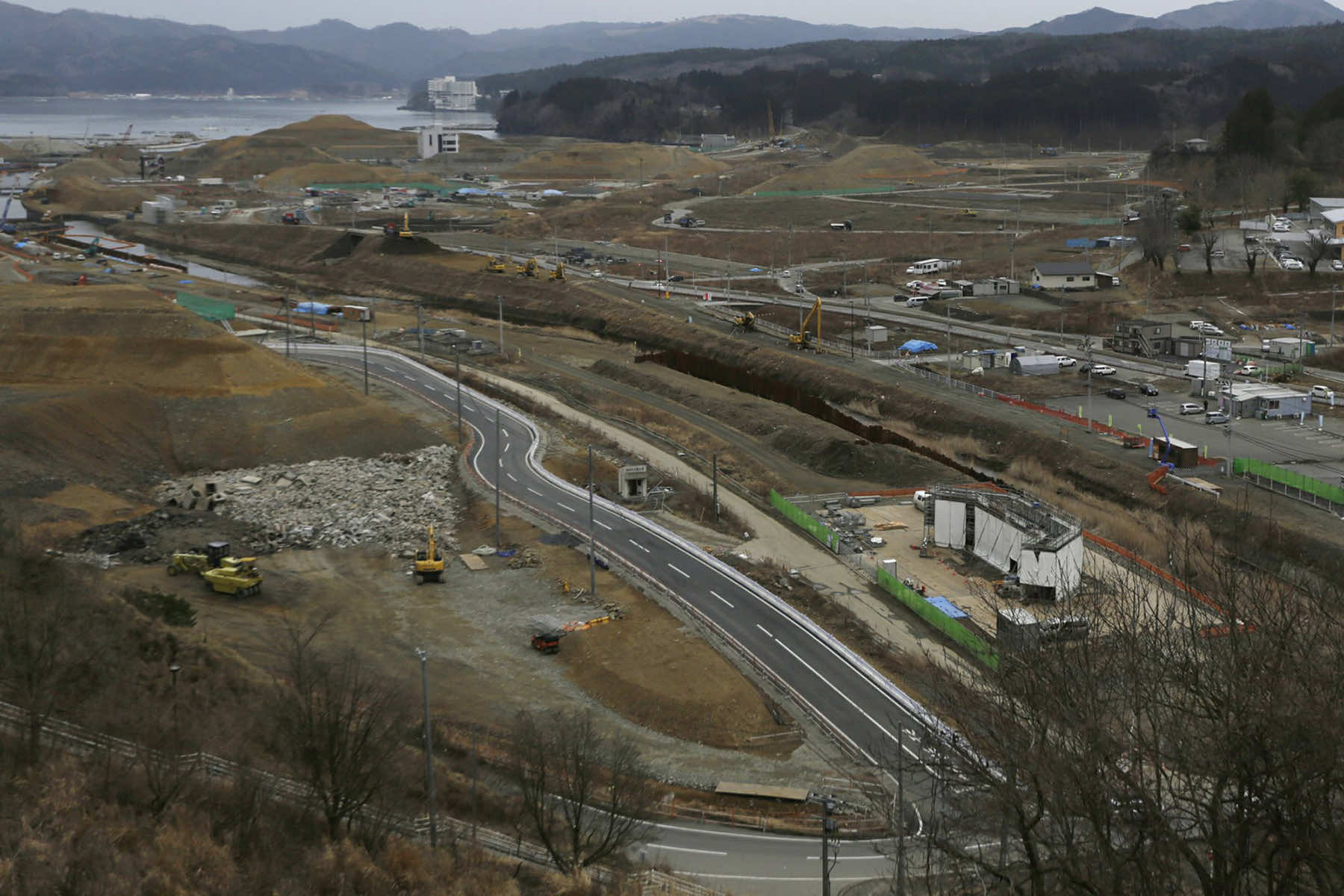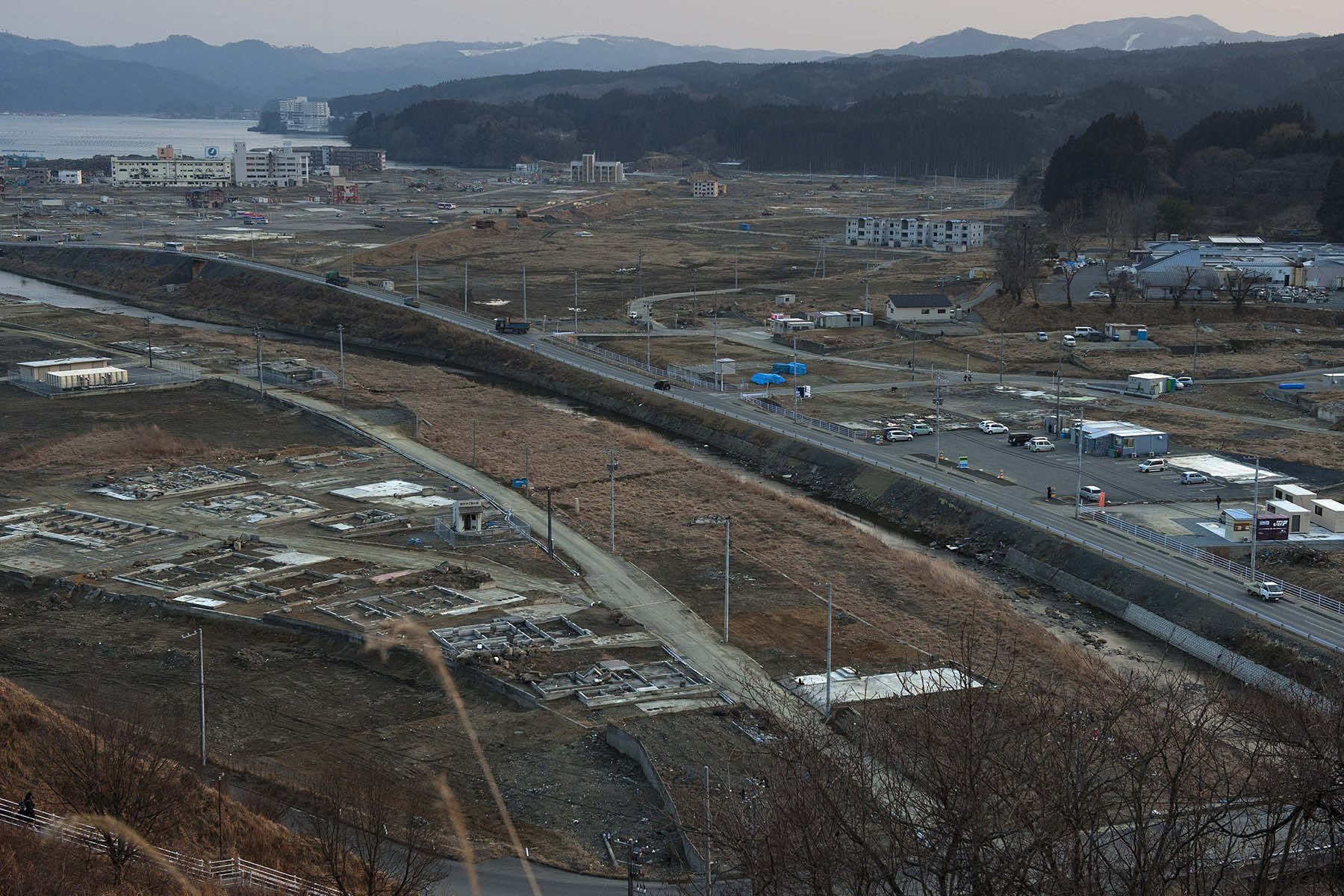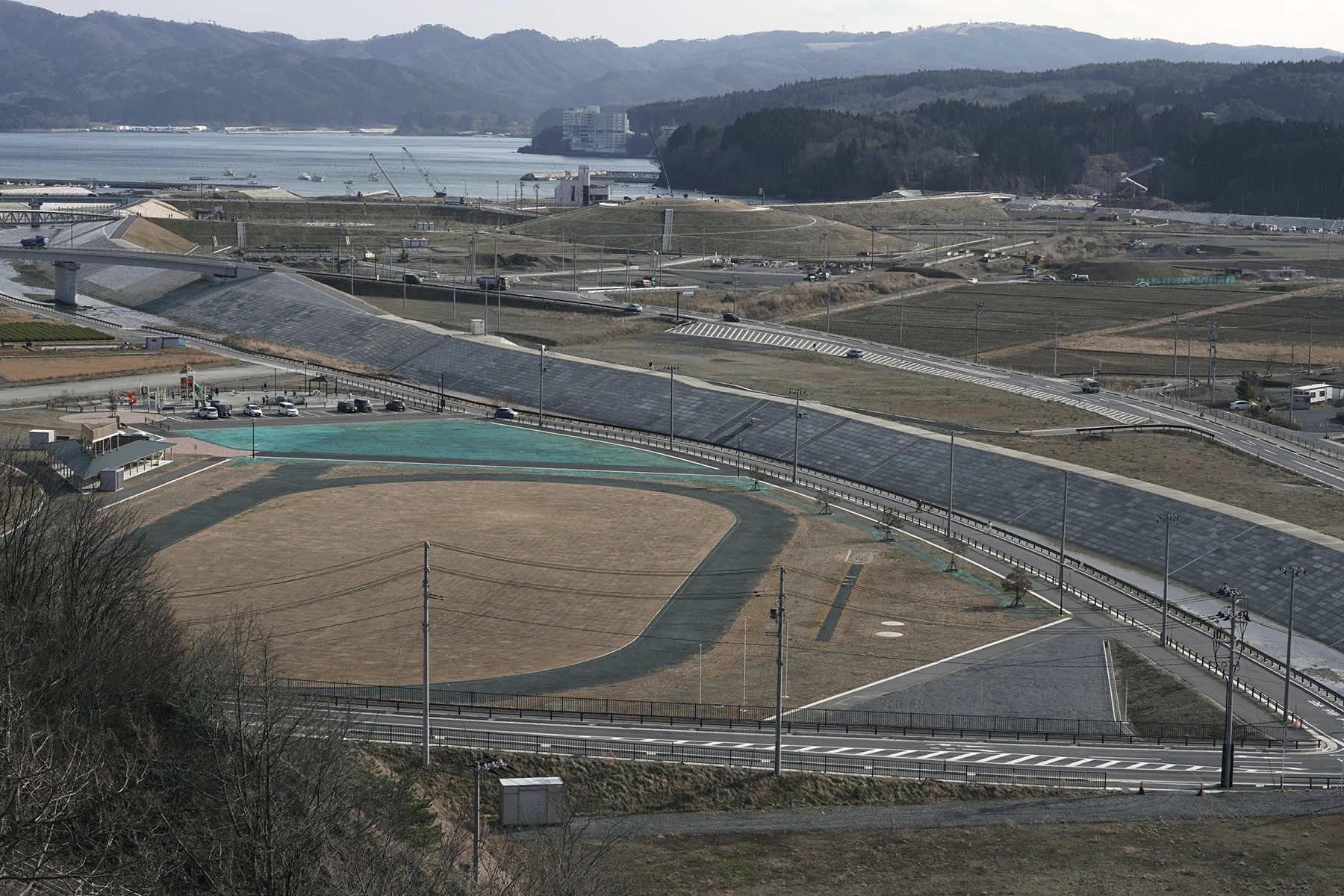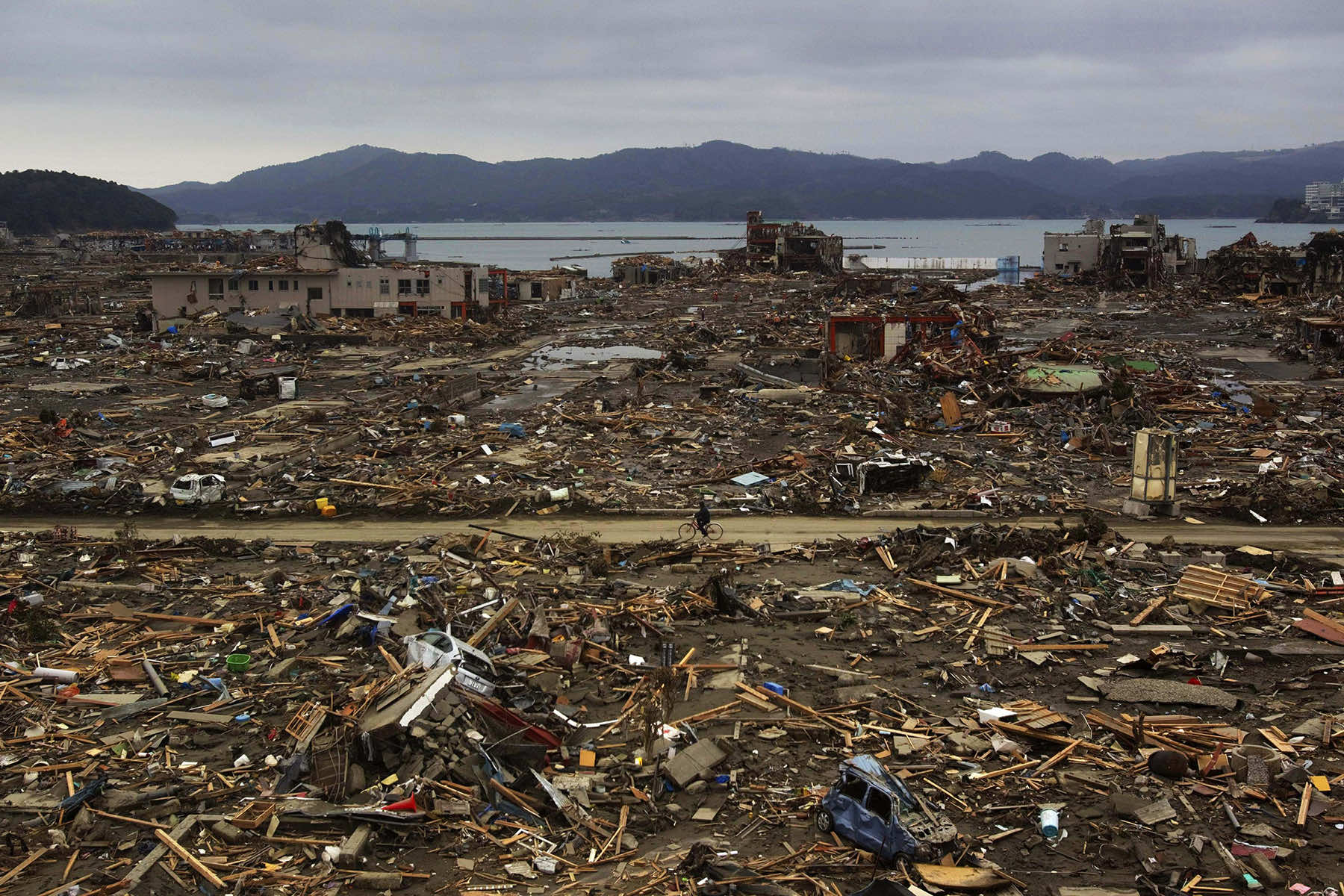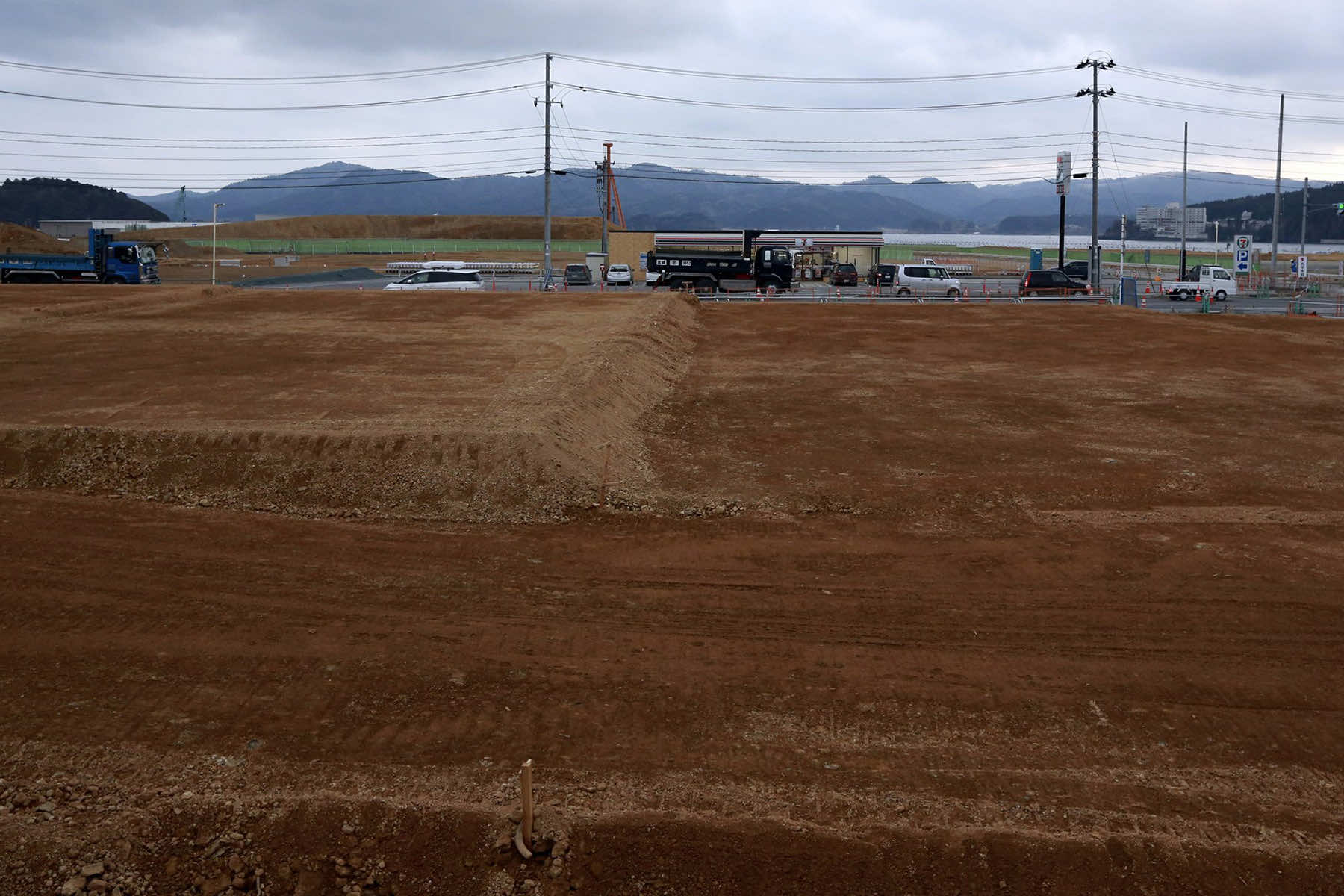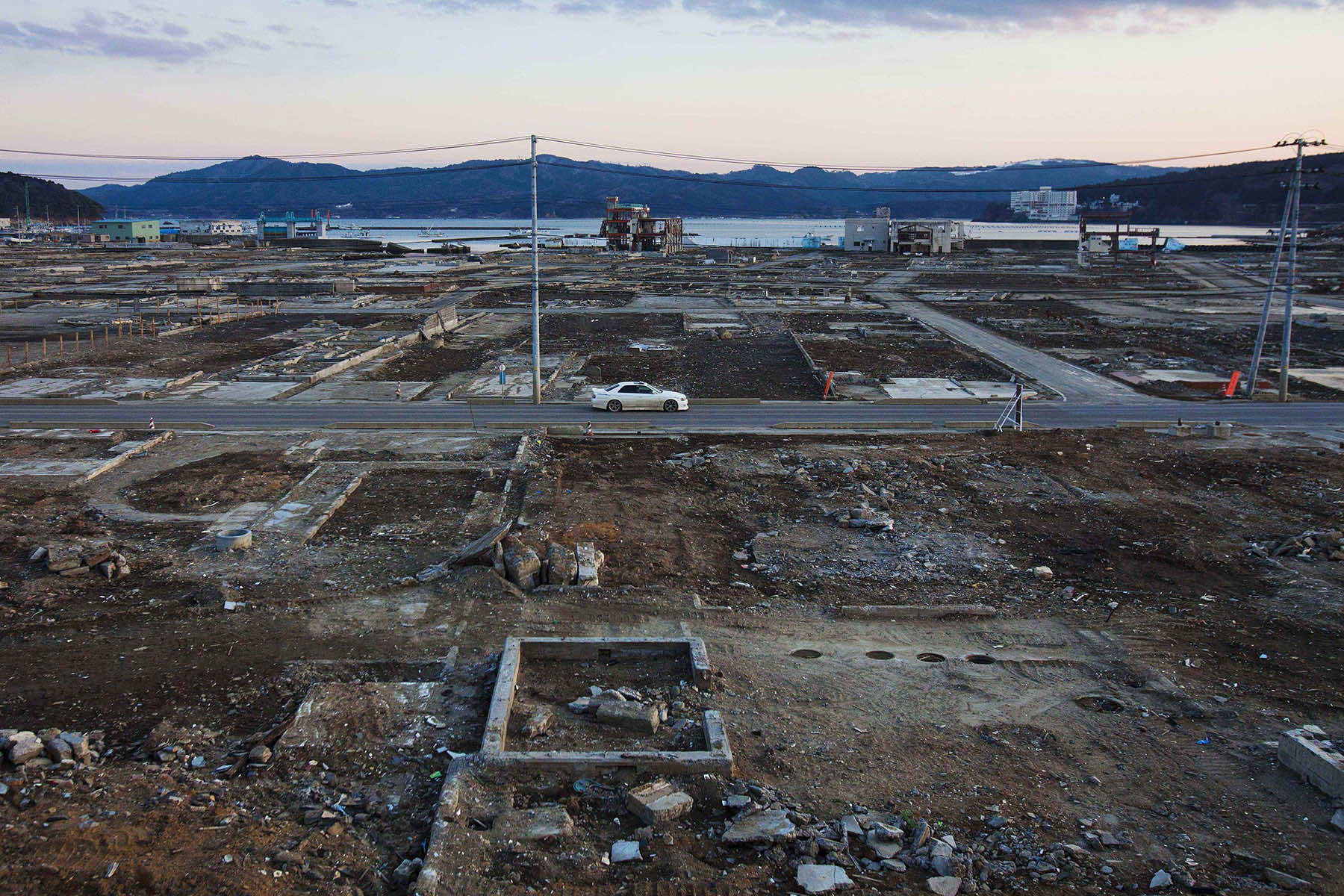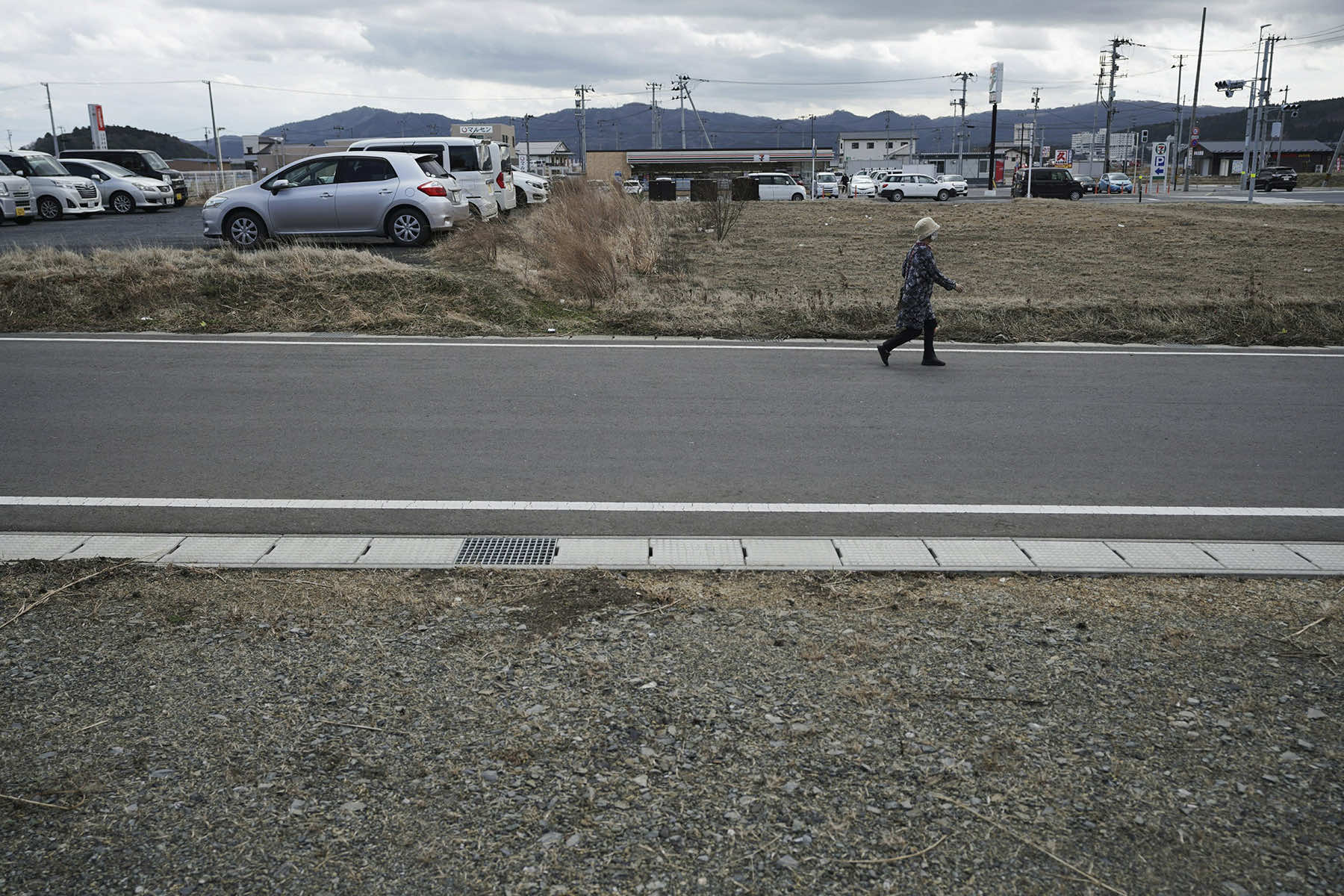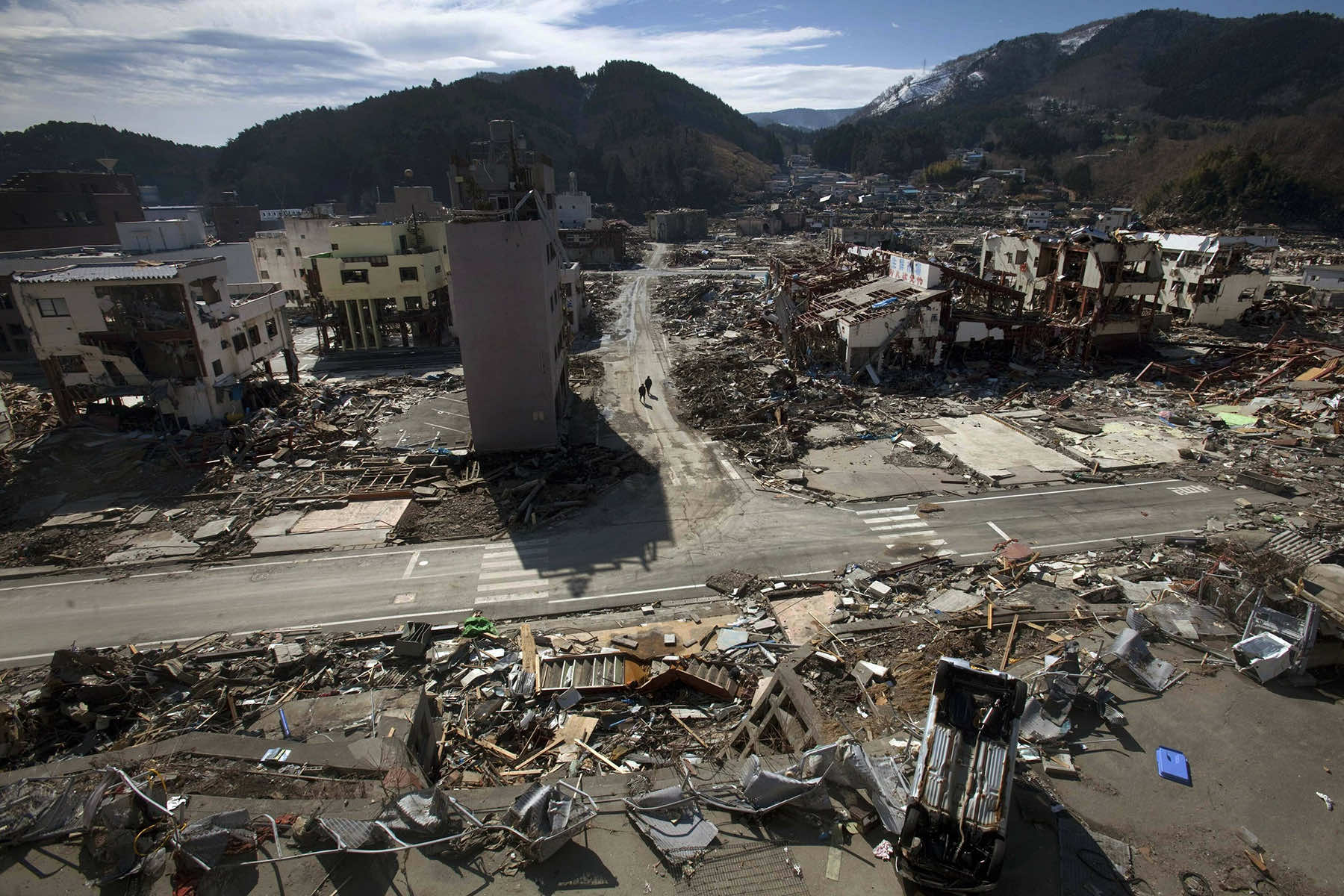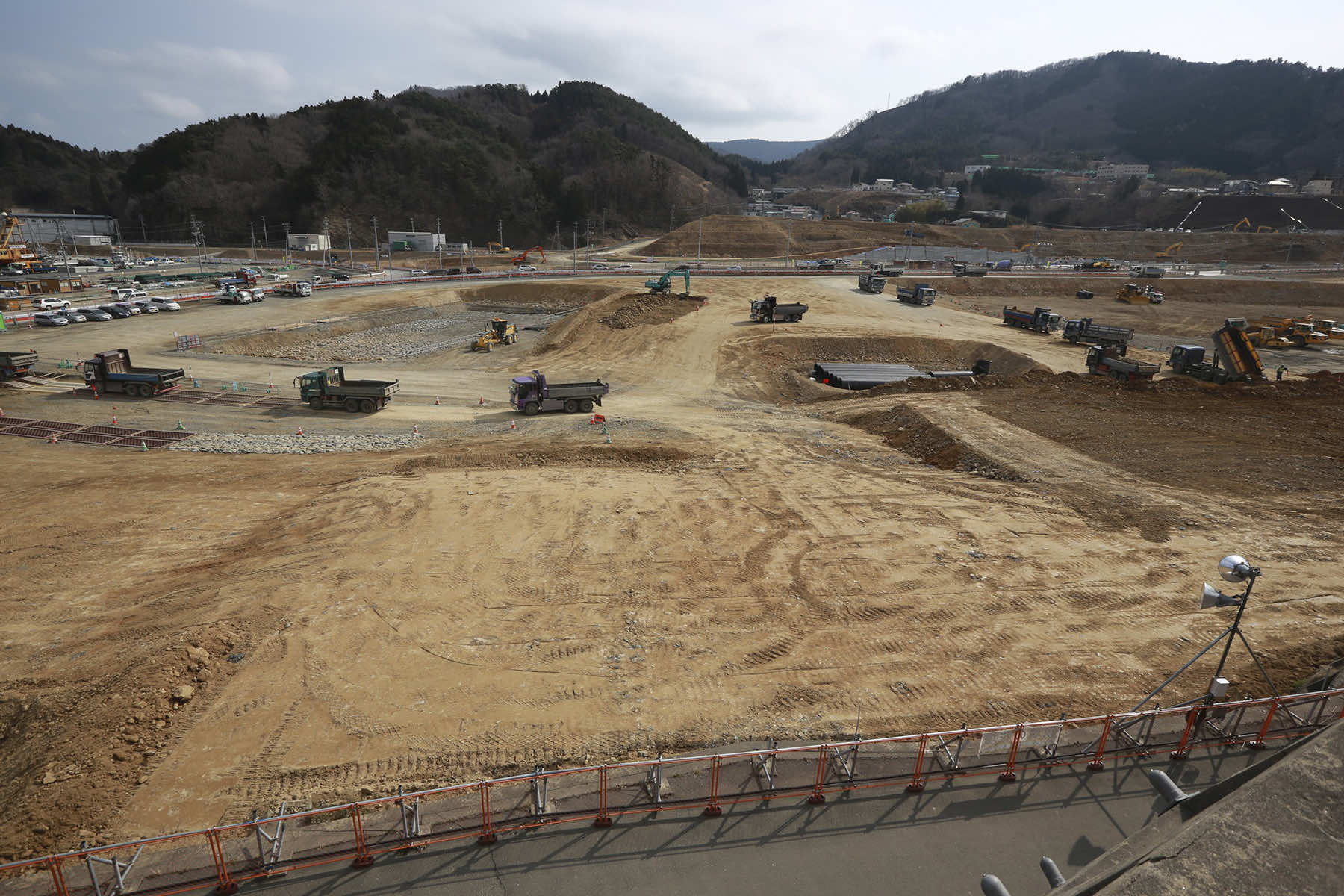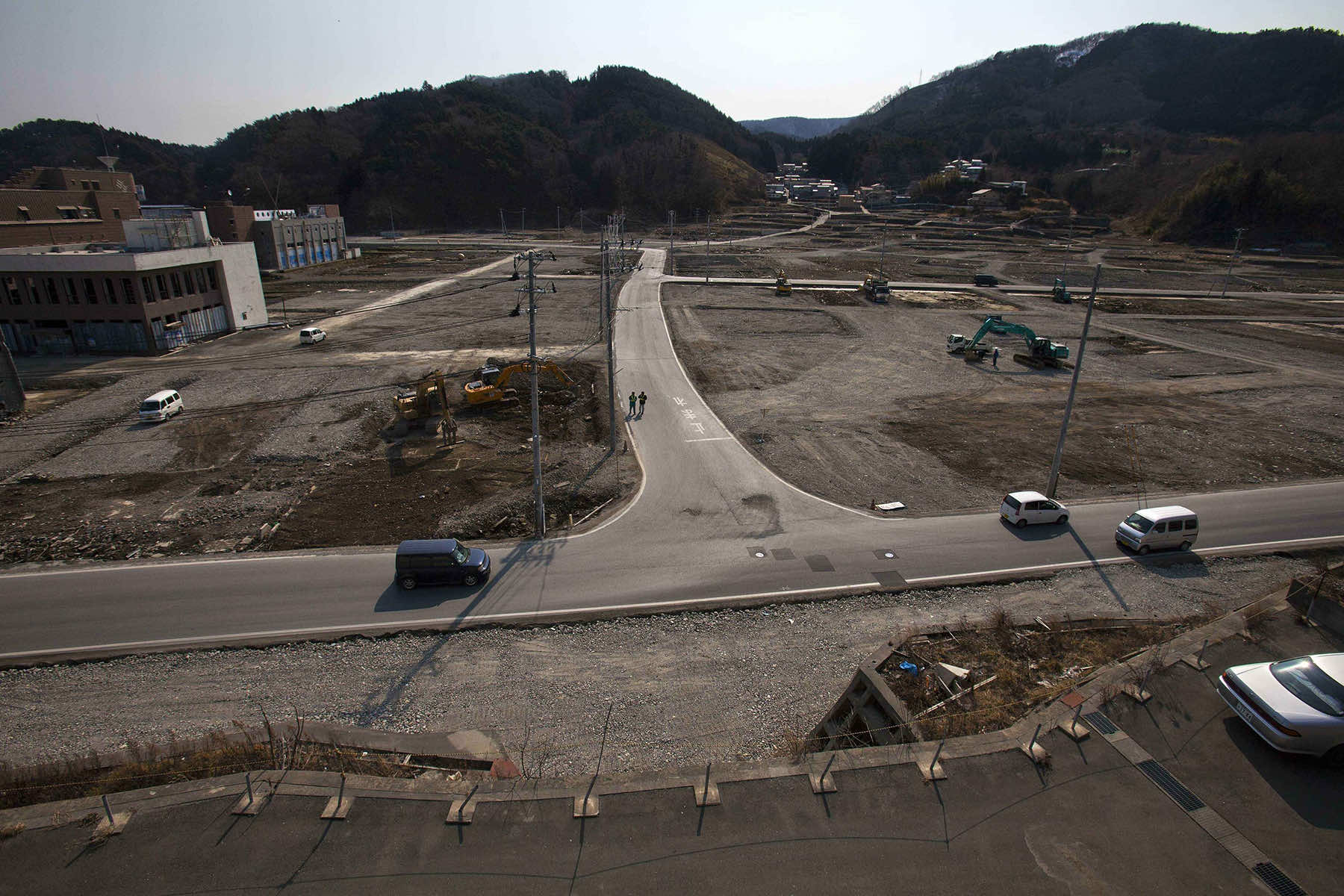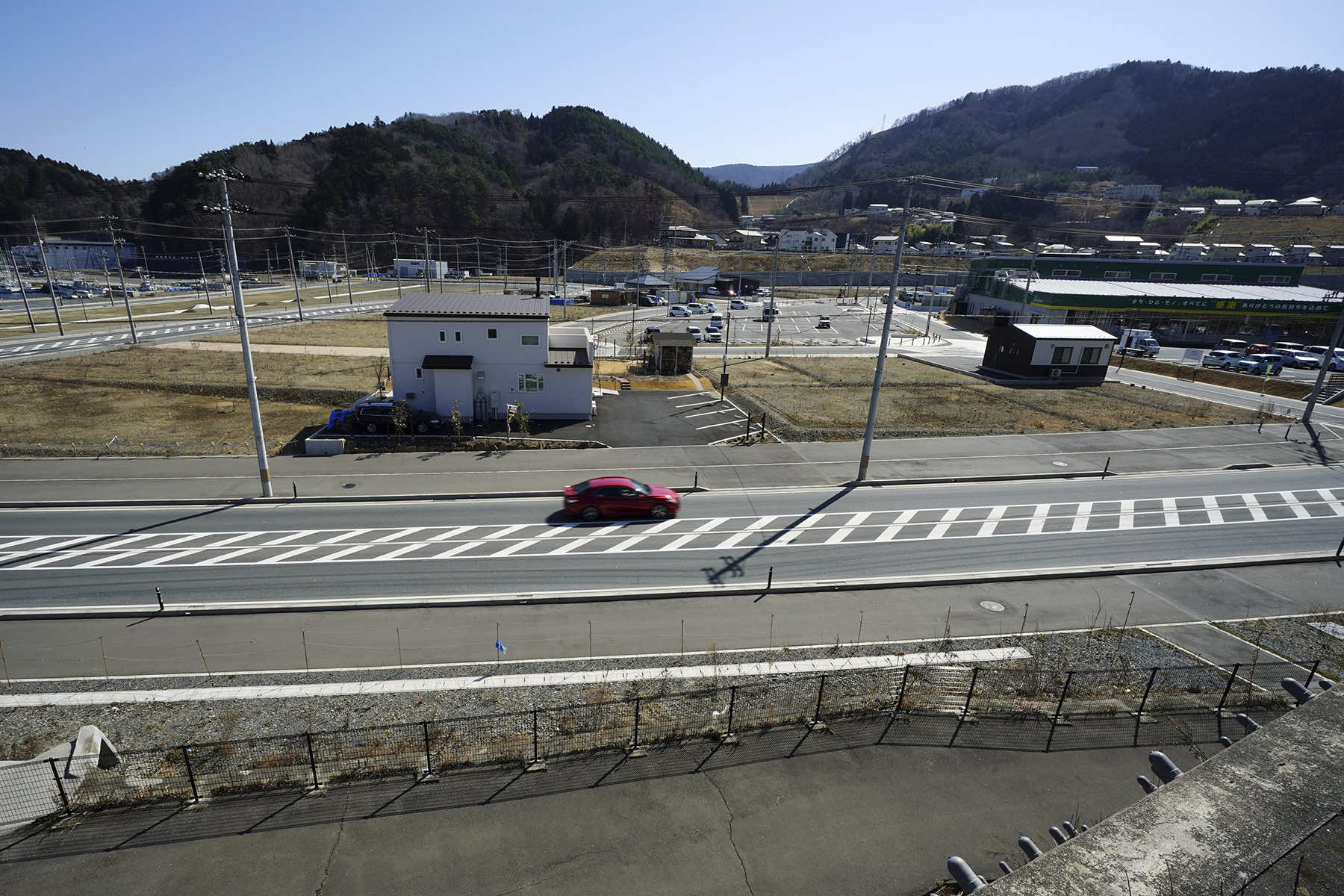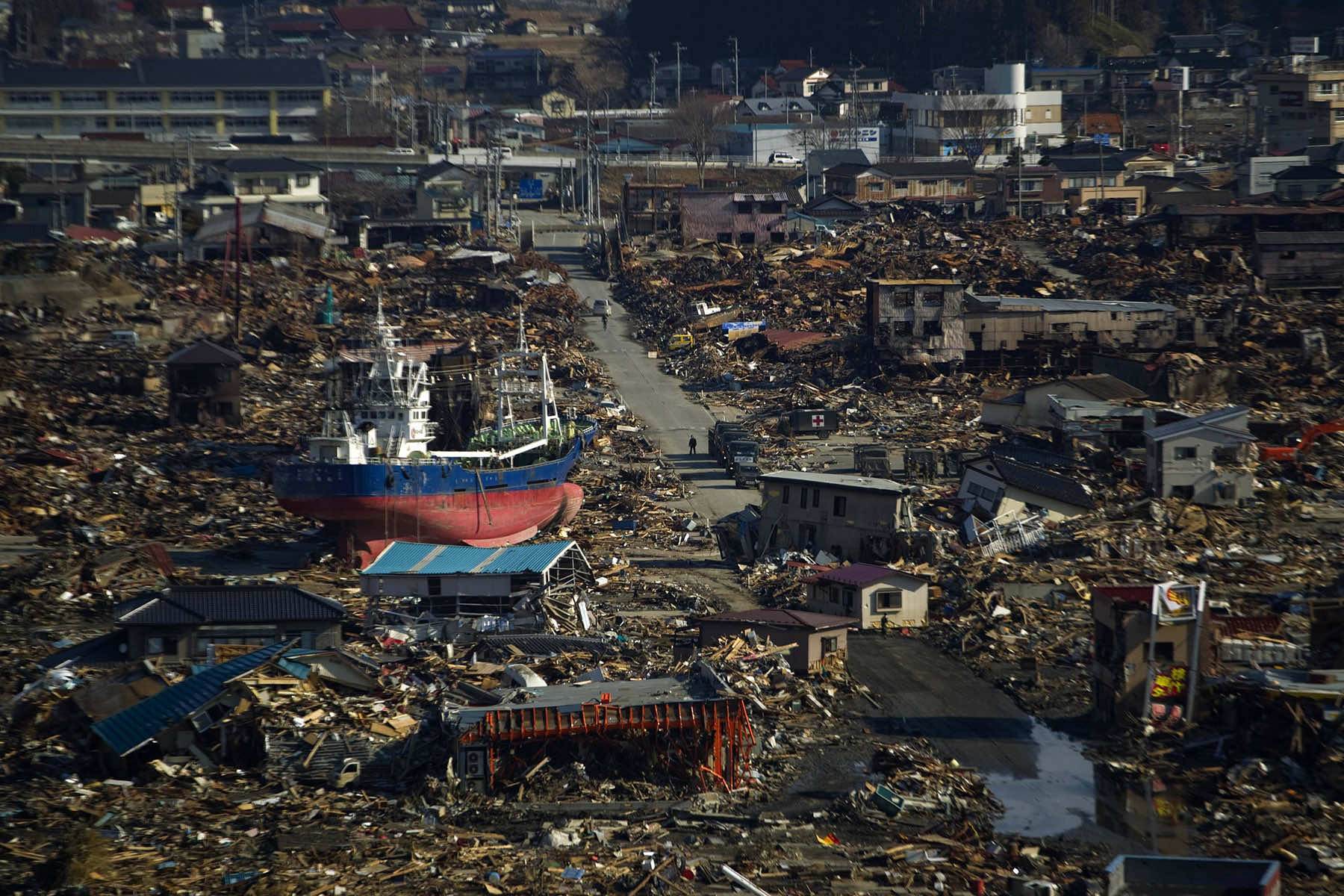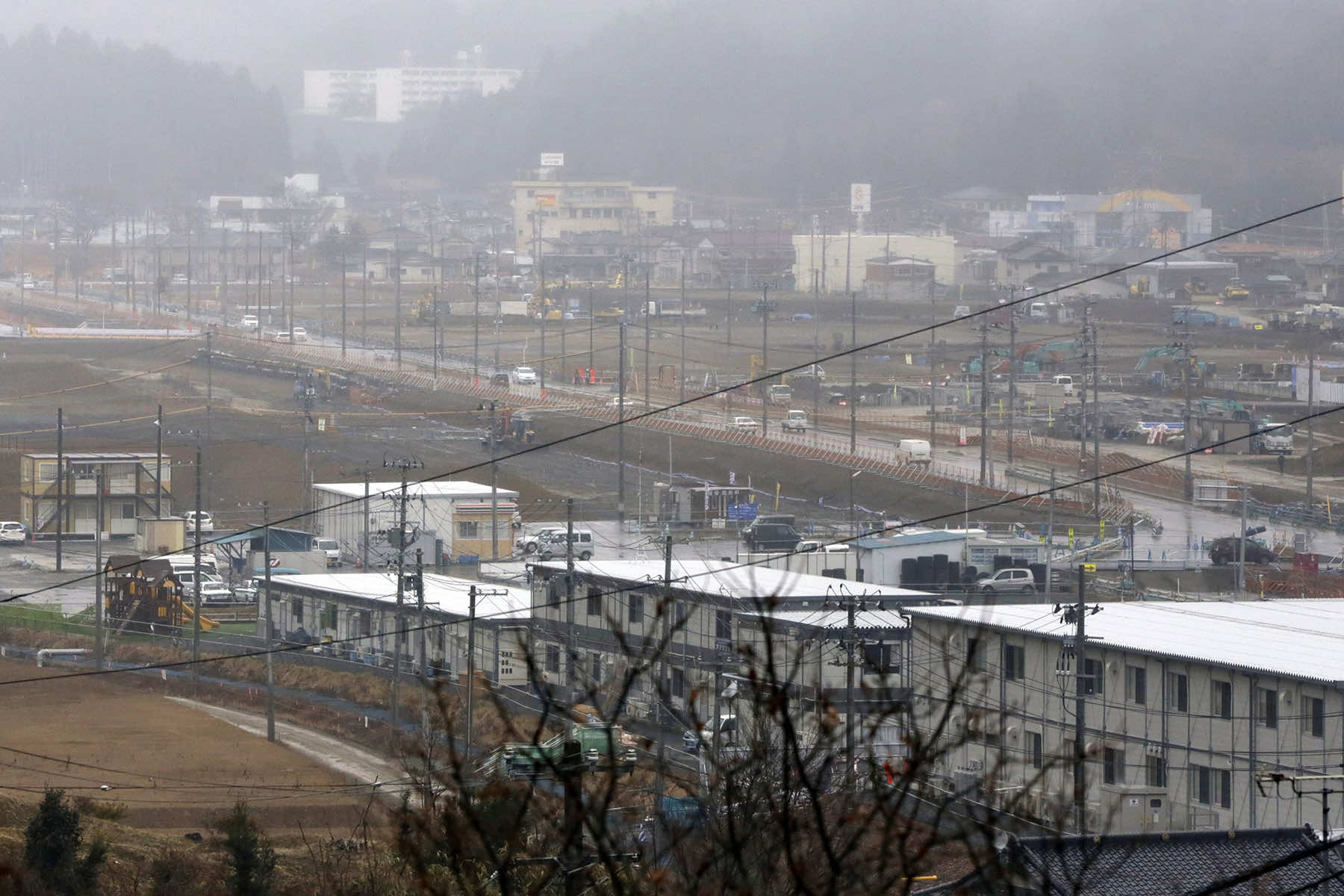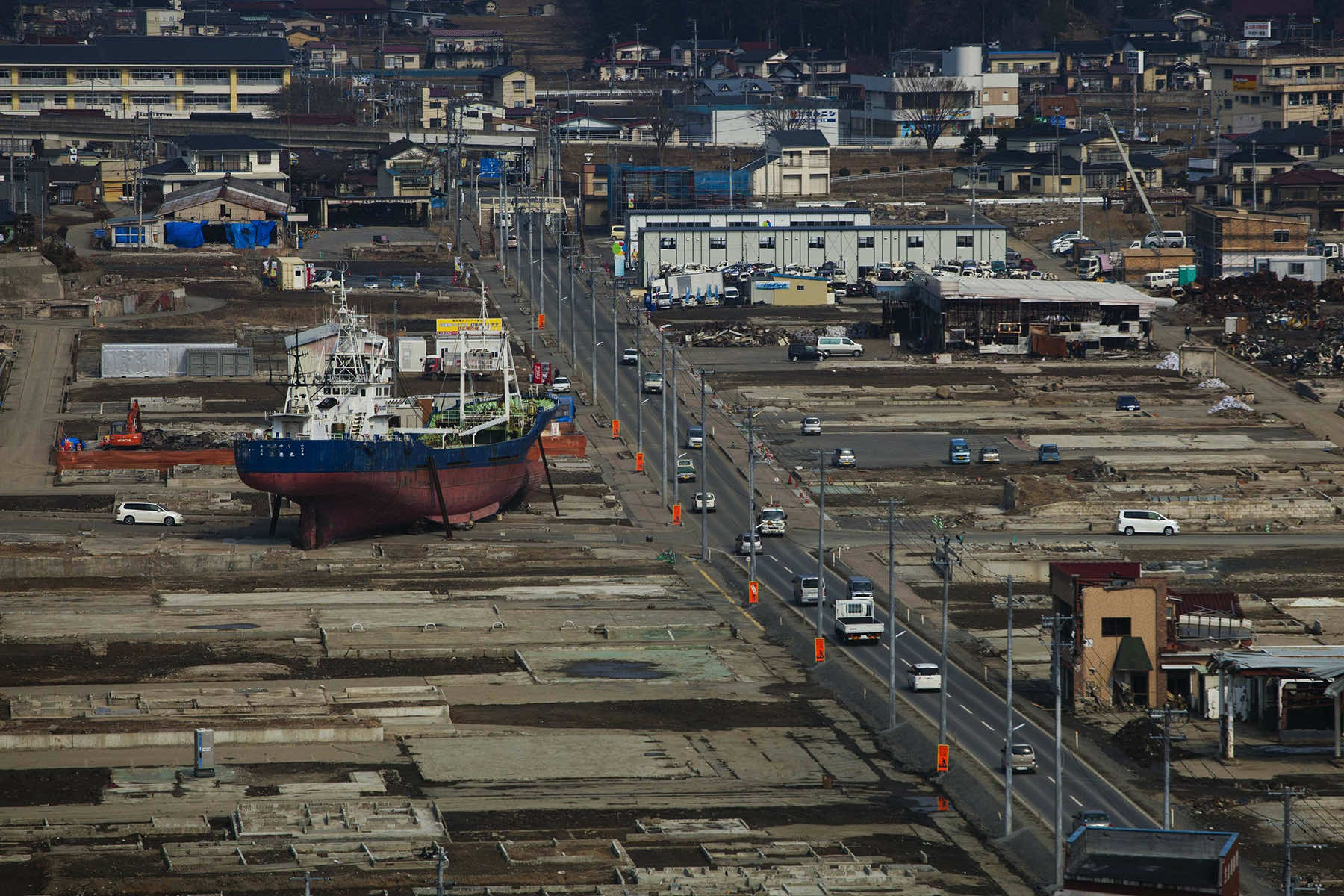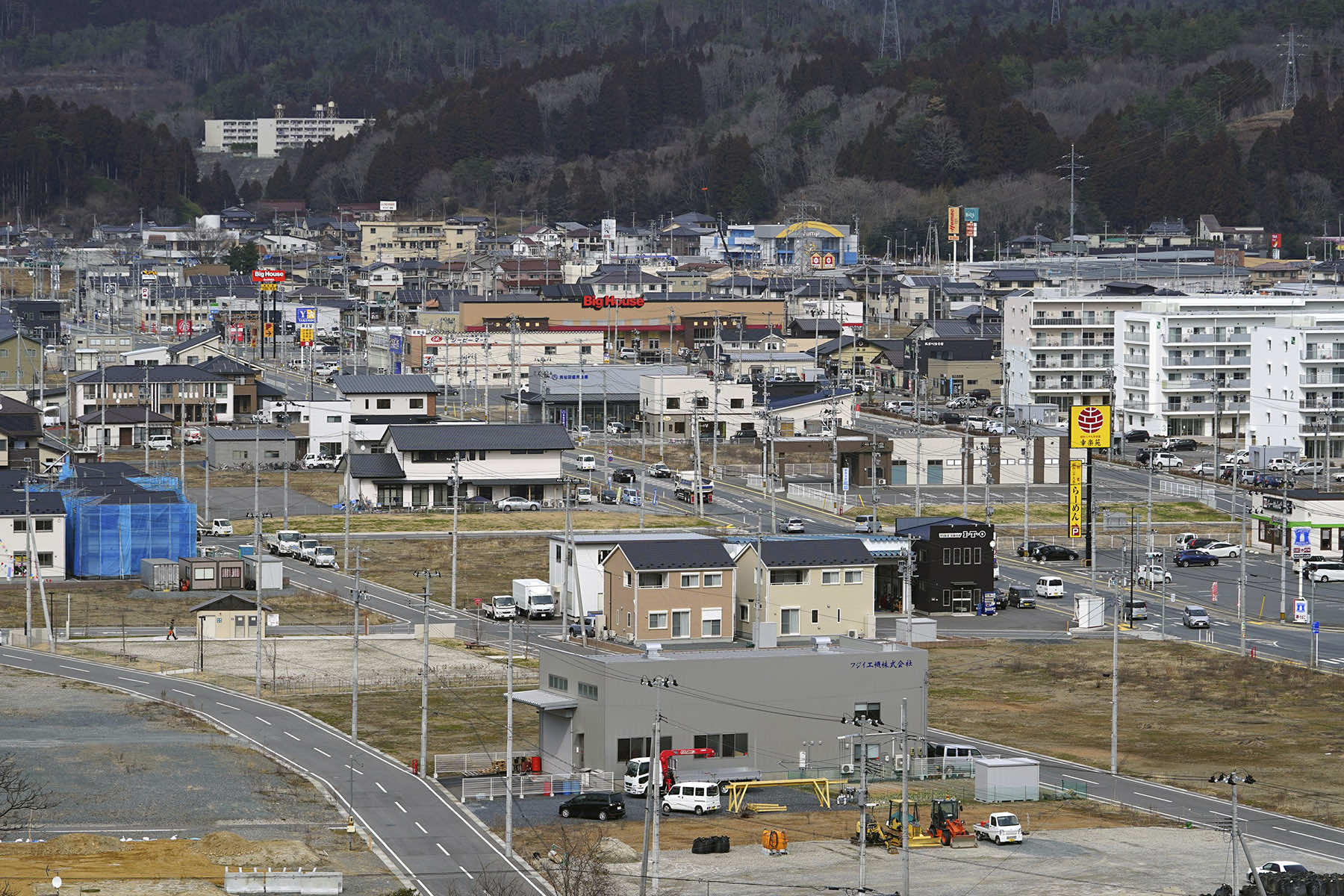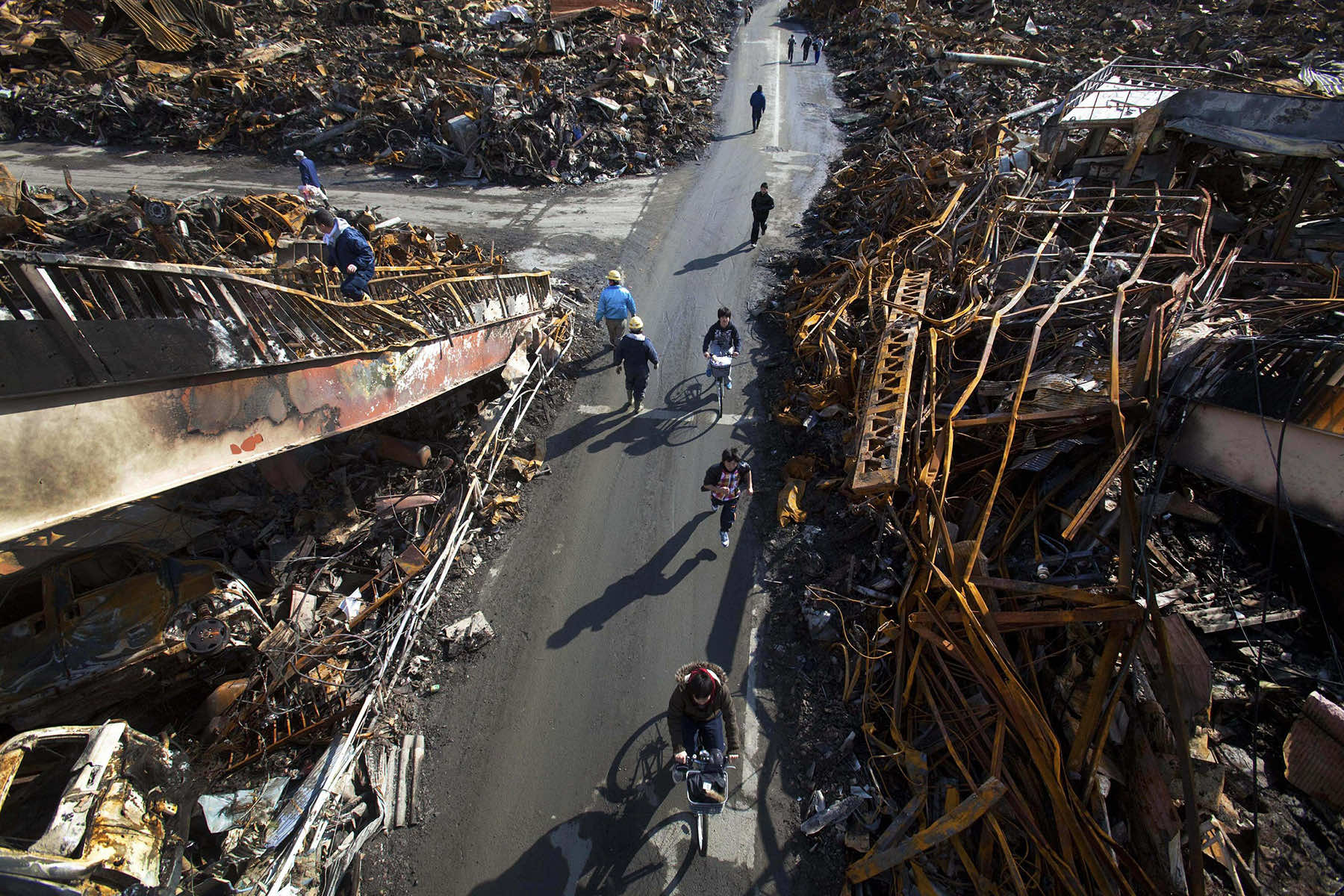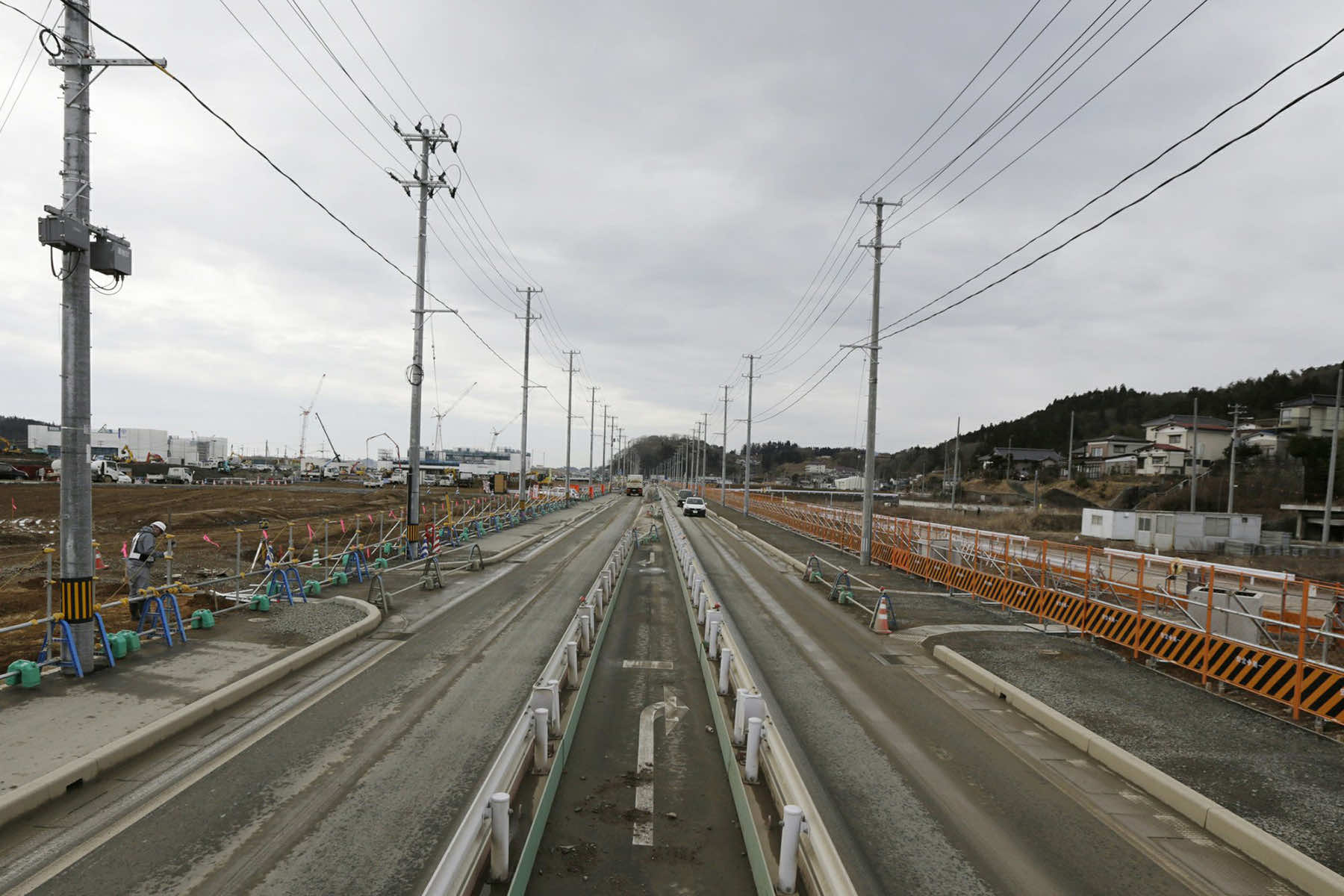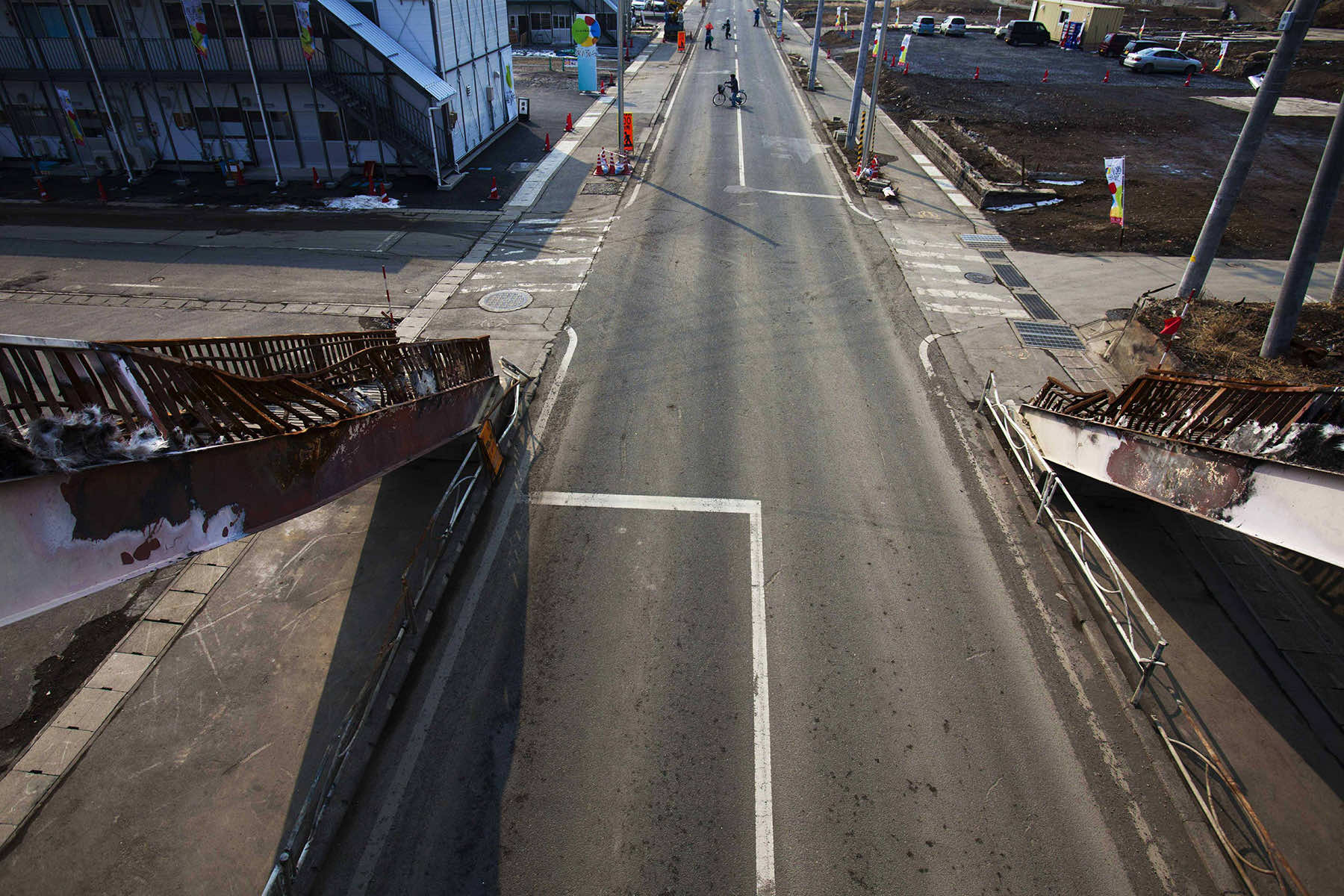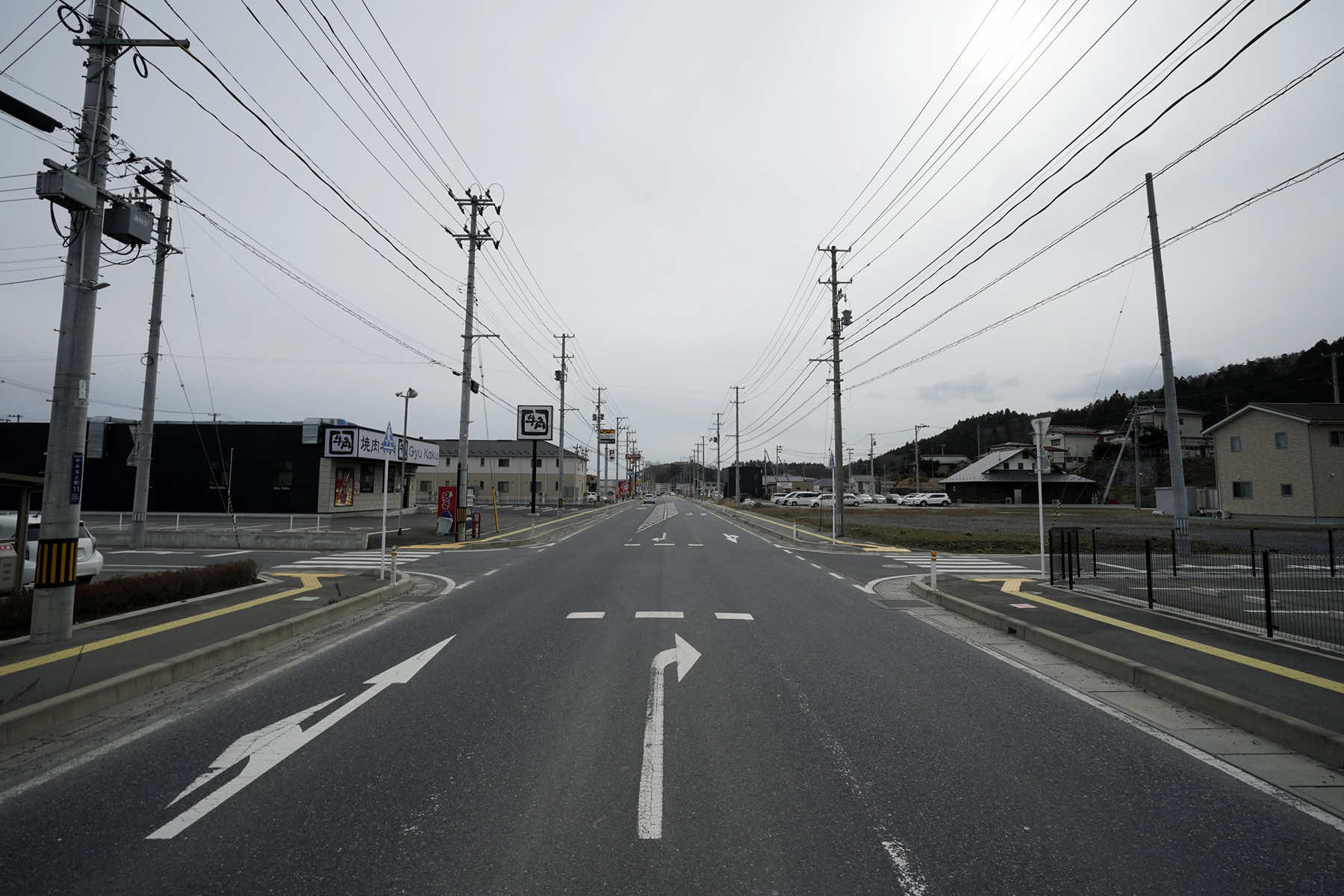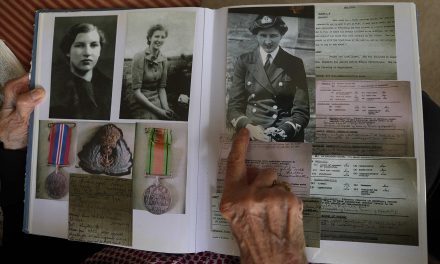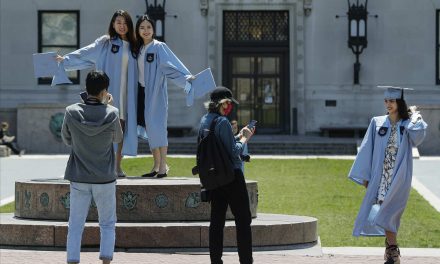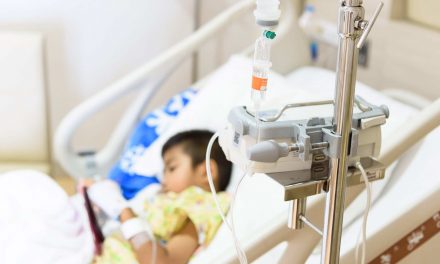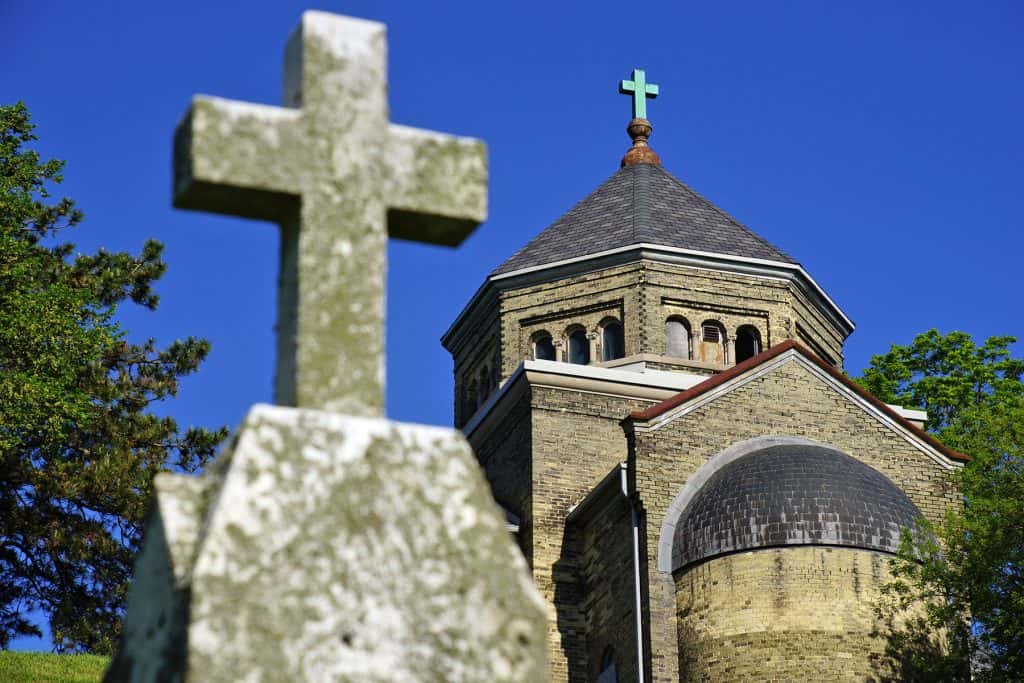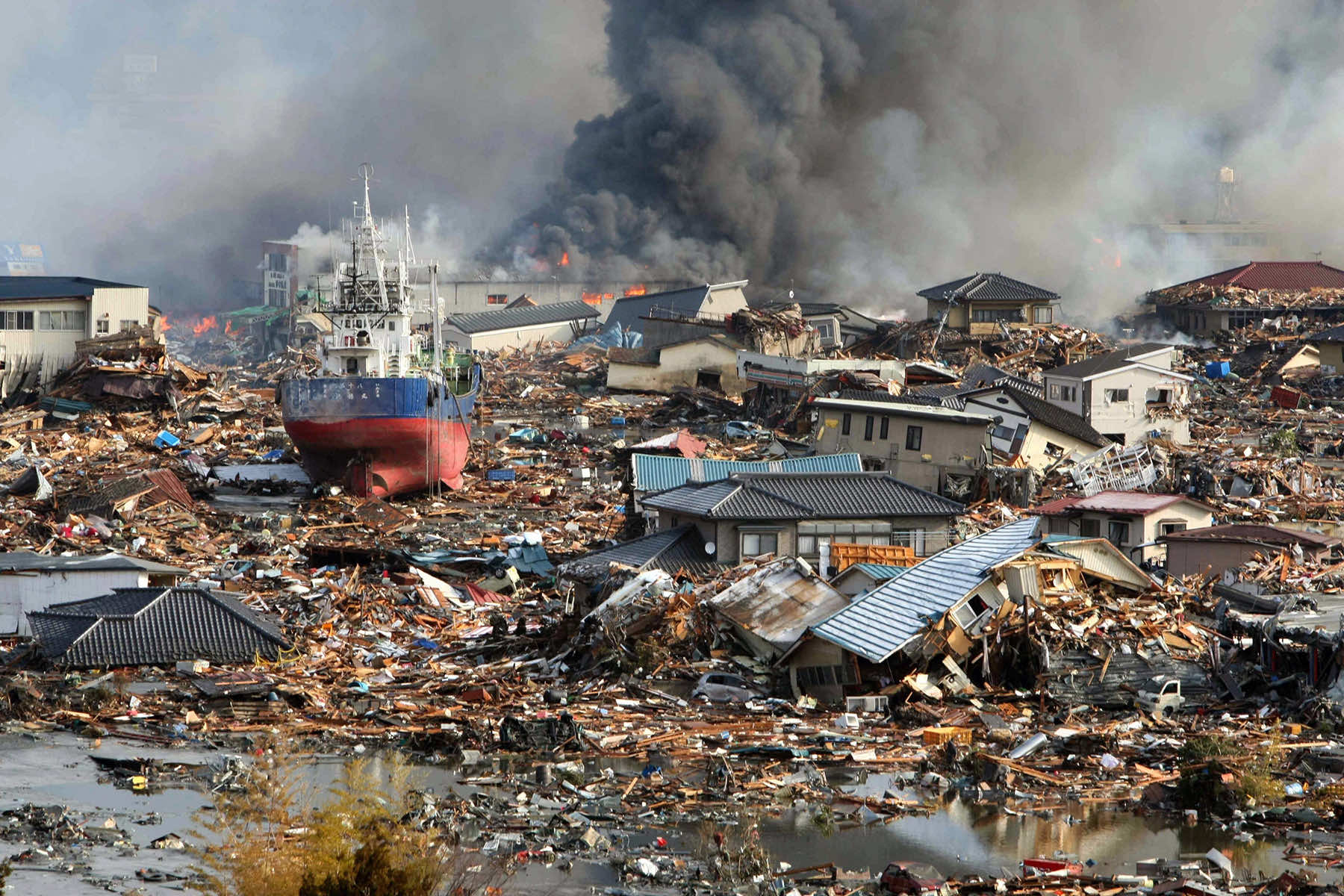
The images still hold the power to shock, in the aftermath of the 2011 Tōhoku earthquake and tsunami.
Dazed survivors walk beneath huge sea tankers deposited amid an expanse of rubble and twisted iron that was once a busy downtown, the ships toppled onto their sides like children’s toys. Grieving survivors pick through the flattened debris where their homes used to be. Deserted farms stand in the shadow of the Fukushima nuclear plant, where a catastrophic meltdown still reverberates. These arresting images were captured by The Associated Press in 2011 after a massive wall of water leveled part of Japan’s northeastern coast, washing away cars, homes, office buildings and thousands of people. In 2021, on the 10th anniversary of the natural disaster, AP journalists returned to document the communities that were ripped apart by what was simply referred to here as the Great East Japan Earthquake. The urge to rebuild in a land that has been wracked by millennia of disaster — volcanic eruptions, tsunamis, earthquakes, war and famine — remains powerful. In some areas there was little or no trace of the devastation of 2011.
Vehicles pass through the ruins of the leveled city of Minamisanriku, Miyagi Prefecture, northeastern Japan, on March 15, 2011, four days after the Tsunami devastated the area. 📸 David Guttenfelder
Construction works go on in the leveled city of Minamisanriku, Miyagi Prefecture, northeastern Japan, on March 7, 2016, almost five years after the March 11, 2011 tsunami. 📸 Eugene Hoshiko
Vehicles pass through the ruins of the leveled city of Minamisanriku, Miyagi Prefecture, northern Japan, on Feb. 23, 2012, almost one year after the March 11, 2011 tsunami. 📸 David Guttenfelder
Vehicles pass through the streets in the city of Minamisanriku, Miyagi Prefecture, northeastern Japan, on March 6, 2021, nearly 10 years after the March 11, 2011 tsunami. 📸 Eugene Hoshiko
But this triple disaster in the Tohoku region of Japan — earthquake, tsunami and nuclear meltdown — has been unlike any Japan has faced before, and the challenges of returning to what was normal a decade ago have been immense. Half a million were forced from their homes; tens of thousands have not returned, emptying towns that were already struggling to keep their young people from leaving for Tokyo and the other megacities. Radiation fears linger. Government incompetence, petty squabbling and bureaucratic wrangling have delayed building efforts.
A survivor of the earthquake and tsunami rides his bicycle through the leveled city of Minamisanriku, in northeastern Japan, on March 15, 2011, four days after the Tsunami. 📸 David Guttenfelder
Trucks and cars pass through the leveled city of Minamisanriku, Miyagi Prefecture, northern Japan, on March 5, 2016, nearly five years after the Tsunami. 📸 Eugene Hoshiko
A car passes through the leveled city of Minamisanriku, Miyagi Prefecture, northeastern Japan, on February 23, 2012, almost one year after the March 11 tsunami. 📸 David Guttenfelder
A woman walks through the city of Minamisanriku, Miyagi Prefecture, northern Japan, March 6, 2021, nearly ten years after the Tsunami. 📸 Eugene Hoshiko
Despite the setbacks and uneven progress, the Tohoku of 2021 was a testament to a collective force of will — national, local and personal. Looking closely, however, and it can be seen that even the most breathtaking transformations still held the residue of what happened in 2011, the scars of that deep wound to the region’s psyche.
Residents of the tsunami and earthquake destroyed town of Onagawa in Miyagi Prefecture, northern Japan, walk down an empty street March 19, 2011. 📸 David Guttenfelder
Trucks line up in queue to dump soils in the tsunami and earthquake destroyed town of Onagawa, Miyagi Prefecture, northern Japan, March 5, 2016. 📸 Eugene Hoshiko
Two officials walk along a street in the tsunami and earthquake destroyed town of Onagawa, Miyagi Prefecture, northern Japan February 22, 2012. 📸 David Guttenfelder
Ten years after the disaster, some of new buildings stand sparsely are seen in the tsunami and earthquake destroyed town of Onagawa, Miyagi Prefecture, northern Japan. March 4, 2021. 📸 Eugene Hoshiko
In one way, it was the simplest thing in the world to describe. The removal of tons of rubble here, the absence of toppled tankers there. The repaved roads where there had been cracked and buckled piles of asphalt before. The gleaming new buildings that now rise above what had been cleared dirt patches.
A ship sits in a destroyed residential neighborhood in Kesennuma, Miyagi Prefecture, northeastern Japan, March 28, 2011, after a powerful tsunami hit the area on March 11. 📸 David Guttenfelder
Reconstruction process is seen at the 2011 tsunami destroyed residential neighborhood in Kesennuma, Miyagi Prefecture, northeastern Japan on March 6, 2016. 📸 Eugene Hoshiko
A ship sits in a destroyed residential neighborhood in Kesennuma, Miyagi Prefecture, northeastern Japan, on February 23, 2012, almost a year after an earthquake and tsunami ravaged the country’s coastline. 📸 David Guttenfelder
Tsunami destroyed residential neighborhood in Kesennuma, Miyagi Prefecture, northeastern Japan is seen on March 5, 2021. 📸 Eugene Hoshiko
But the starkness of this physical change also carries the idea of something that was much less clear cut, something about the people who live in these places. Their resilience, their stoicism, their grief and anger and stubborn refusal to bow to forces outside their control, whether natural or bureaucratic. All of that, and more, was present in the powerful scenes of before and after, then and now. The pictures tell the story — of great change and the people who made it happen.
Residents pass through a road that was cleared by bulldozer through the ruins of the city of Kesennuma, Miyagi Prefecture, northeastern Japan, on March 17, 2011, six days after the March 11 tsunami. 📸 David Guttenfelder
A worker checks the construction site in Kesennuma, Miyagi Prefecture, northeastern Japan March 7, 2016. 📸 Eugene Hoshiko
Residents are seen on a road in the destroyed part of the city of Kesennuma, Miyagi Prefecture, northern Japan, on February 23, 2012, almost one year after the March 11, 2011 tsunami. 📸 David Guttenfelder
Nearly 10 years after the 2011 tsunami disaster, recovered streets are seen in Kesennuma, Miyagi Prefecture, northeastern Japan, March 5, 2021. 📸 Eugene Hoshiko

